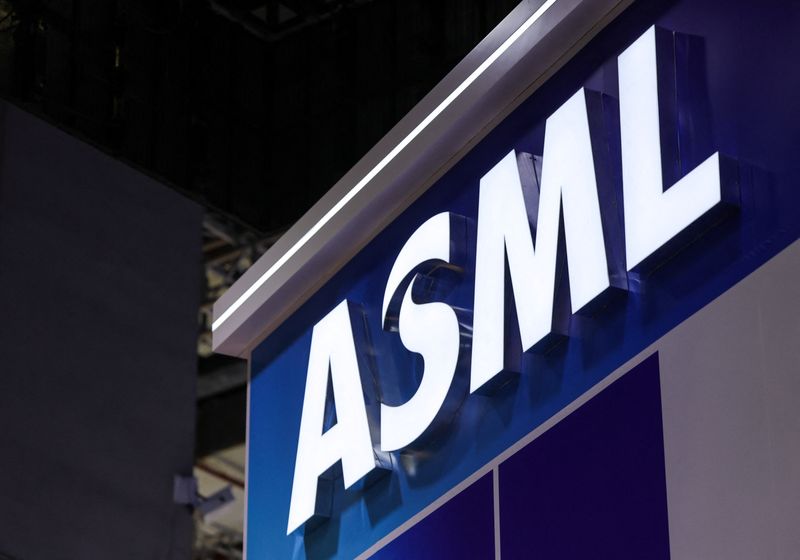ASML launches technical academy in Phoenix to train in-demand engineers
By Max A. Cherney
PHOENIX (Reuters) -Chip equipment maker ASML on Thursday launched a technical academy in Phoenix to train engineers to service the Dutch company’s complex chipmaking machines.
Located within a few minutes of the Phoenix airport, the facility is designed to train more than 1,000 engineers a year to repair and service ASML’s chipmaking tools.
ASML decided to open the academy because of the significant increase in advanced chip manufacturing in the United States. Intel and Taiwan’s TSMC have announced significant expansions around Phoenix, and Samsung is expanding its fab near Austin, Texas. Memory maker Micron also has multibillion-dollar expansion plans in the U.S.
ASML’s deep ultraviolet (DUV) and extreme ultraviolet (EUV) machines for making advanced chips are intricate tools that require a similar level of service as modern warplanes such as the F-35, said Vice President Clayton Patch.
The most advanced EUV tools cost roughly $400 million and it takes several 747s to ship them from ASML’s manufacturing site in the Netherlands.
Ideal candidates for the service jobs are often ex-military who have worked in the U.S. Navy or Air Force on fighter jets, Patch said.
“They’re really good hires, getting out of the military,” Patch said. “We love those candidates.”
The training facility is the first it will operate in the U.S. in about 20 years, Patch said. Previously engineers had to travel to Asia or Europe to learn how to service the chipmaking tools. ASML’s facility includes 14 classrooms and a cleanroom.
To meet demand for trained engineers, Patch said the facility is capable of operating twenty-four hours a day, seven days a week. The company expects eventually to train 2,000 people a year.
The facility, where engineers are already taking classes, will train ASML staff, but other companies that operate fabs, or chipmaking plants, can also pay ASML to train their engineers.
It takes ASML three to six months to train engineers to do simple maintenance. Training for more complex repair tasks can take longer.
(Reporting by Max A. Cherney in Phoenix; Editing by Tom Hogue)



Leave a Comment
Your email address will not be published. Required fields are marked *